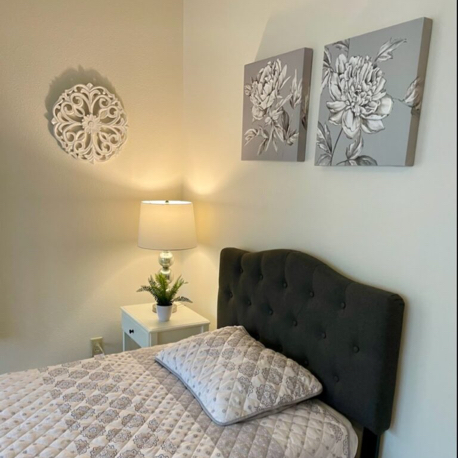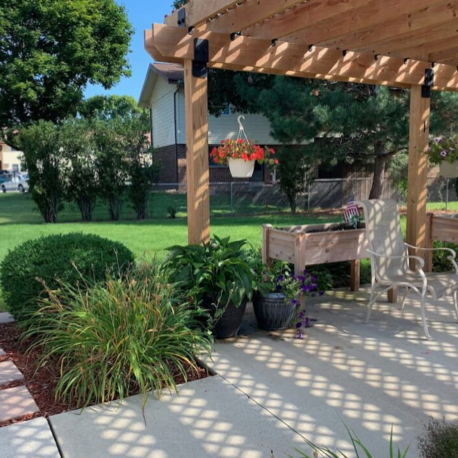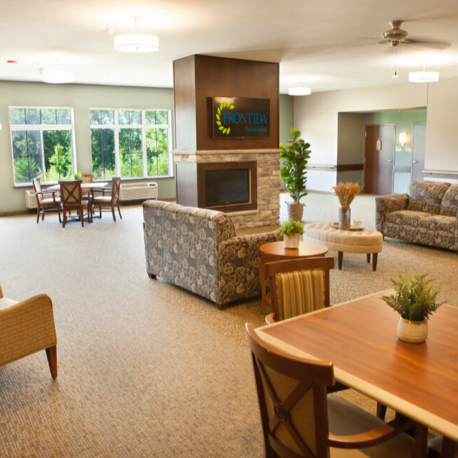Caring for someone with dementia often comes with questions, one of the most common being about changes in their sleep patterns. You may have noticed your loved one sleeping more than usual, even for long periods during the day. This can be concerning for both caregivers and family members trying to make sense of what’s going on and how to help.
While it’s not unusual for dementia patients to experience changes in their sleep for a number of reasons, understanding the underlying causes can provide clarity and guide effective care practices. Let’s explore why seniors with dementia may sleep excessively and discuss actionable steps you can take to support your loved ones needs.
Understanding the Link Between Dementia & Sleep
Biological Changes in the Brain
One of the fundamental reasons dementia patients sleep so much lies in the changes happening in their brain. Dementia, particularly Alzheimer’s disease, affects the areas of the brain responsible for regulating sleep-wake cycles. As brain cells deteriorate, production of essential neurotransmitters—like those that help maintain alertness—declines, leading to increased fatigue and a greater need for sleep.
Impact of Medications
Many individuals with dementia take medications to manage symptoms or other health conditions. These medications, such as antipsychotics, antidepressants, or sedatives, often list drowsiness as a side effect. While these drugs play an important role in managing behavior or anxiety, they can also contribute to excessive sleep. A healthcare professional can review your loved one’s medication regime and make adjustments if necessary.
Psychological Factors
Depression and anxiety are common among dementia patients and can further increase their need for sleep. These conditions can drain energy levels, exacerbating feelings of fatigue. Identifying and addressing psychological factors through therapy, support groups, or medication can help improve overall well-being and reduce excessive sleeping.
Daytime Napping & Its Role in Sleep Patterns
Daytime Napping as a Coping Mechanism
Daytime napping is often a way for dementia patients to cope with disrupted nighttime sleep. Nighttime restlessness, agitation, or confusion—hallmarks of sleep disturbances in dementia—can lead to poor-quality sleep at night, making up for it during the day. However, frequent or prolonged daytime naps can be a disruption to the delicate balance of sleep, perpetuating a cycle of insufficient nighttime rests.
Strategies for Managing Daytime Napping
To minimize excessive daytime sleeping, create an engaging and activity-filled routine. Activities like light physical exercise, puzzles, or art therapy can provide both mental and physical stimulation, making it less likely for your loved one to nap excessively. Introducing gentle exposure to natural light also helps regulate their internal body clock, promoting a more consistent sleep schedule.
The Impact of Sundowning Syndrome
Sundowning syndrome is a phenomenon experienced by many dementia patients, characterized by heightened confusion, agitation, and restlessness as evening approaches. While the exact cause is unclear, it’s thought to stem from disruptions in the body’s circadian rhythm, and is compounded by reduced sensory stimuli as the day progresses.

Managing Sundowning Syndrome
Establishing a calming evening routine is key. Activities like listening to soothing music, dimming the lights, or engaging in relaxing hobbies can help reduce agitation and soothe anxiety. Maintaining consistent meal times and ensuring exposure to natural light during the day can also reduce the effects of sundowning.
Supporting the Sleep Needs of Dementia Patients
Providing the best care for a loved one with dementia means addressing the root causes of their excessive sleep and creating strategies to support healthier patterns. Here’s how to create a supportive environment:
Establish a Routine
A structured daily routine brings comfort and predictability to individuals with dementia. Consistent wake-up times, meal schedules, and bedtime rituals can reinforce their internal body clock and improve overall sleep quality.
Encourage Physical Activity
Light physical activity can make a big difference in combating daytime sleepiness and ensuring better rest at night. Activities like walking, gardening, or chair yoga promote alertness during the day and a more restful night.
Create a Comfortable Sleep Environment
The bedroom environment has a significant impact on sleep quality. Ensure the space is quiet, with minimal light and the right room temperature. Adding a nightlight can help reduce confusion if your loved one wakes up during the night.
Monitor Health & Medications
If excessive sleeping persists, consult a healthcare professional. They can assess underlying conditions, review medications, and provide tailored interventions to improve your loved one’s sleep patterns.
Provide Emotional Support
Understanding and empathy go a long way in supporting a loved one with dementia. Acknowledge their challenges, encourage open communication (when possible), and provide reassurance to ease feelings of confusion or anxiety.
Enhancing Sleep Management
Sleep plays a vital role in cognitive function and overall well-being, especially for people living with dementia. By addressing the factors contributing to excessive sleep and implementing thoughtful care practices, caregivers can help improve the quality of life for their loved ones.
Finding the right balance might take time, but with patience and the help of healthcare professionals, you can create a care plan tailored to their needs. If you’re looking for additional support, reach out to Frontida Senior Living. We’re happy to give advice and talk about our memory care programs.
Remember, the goal is not just about managing symptoms—it’s about creating an environment where your loved one can thrive.







